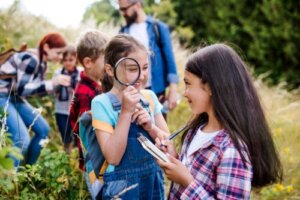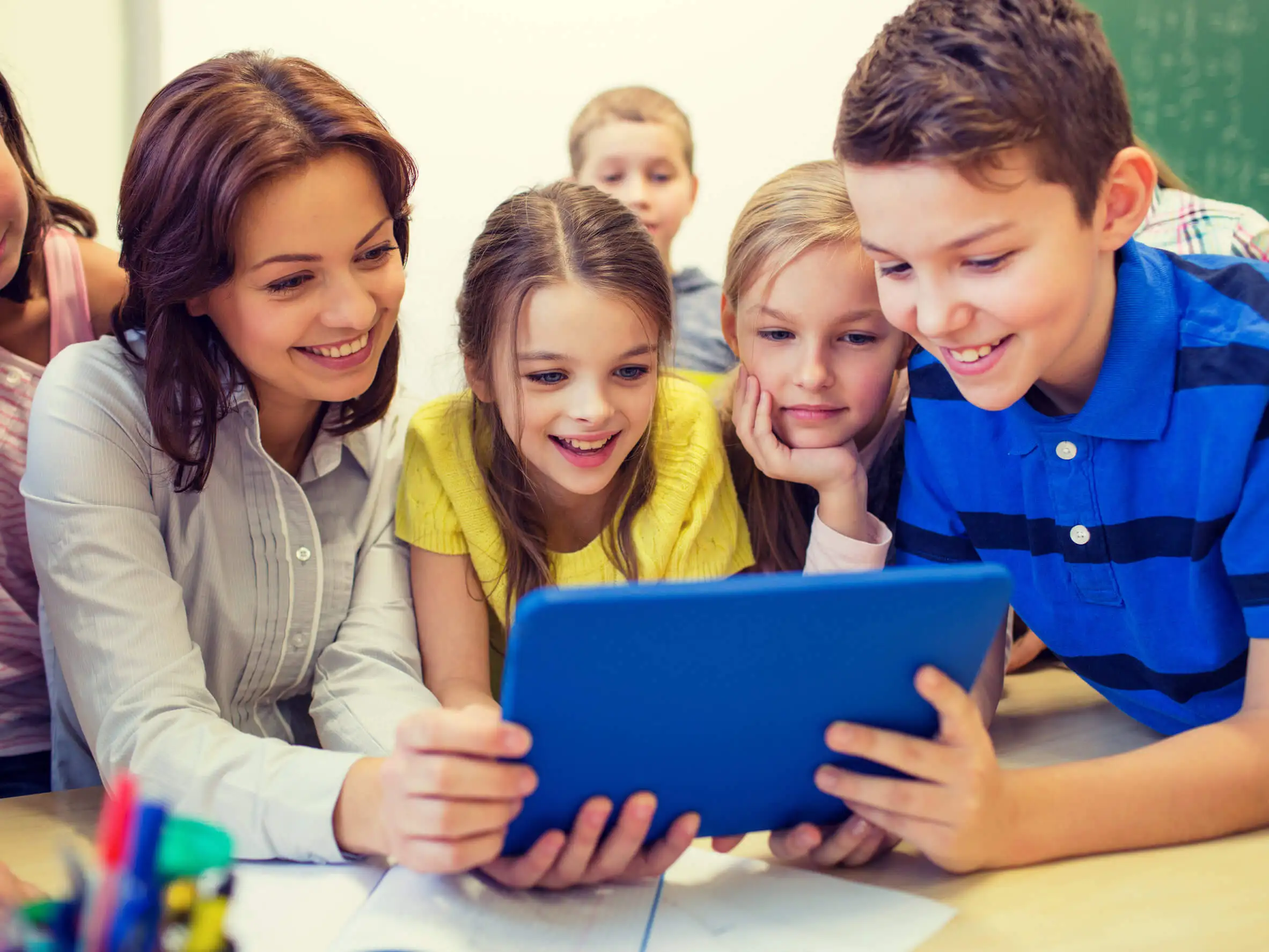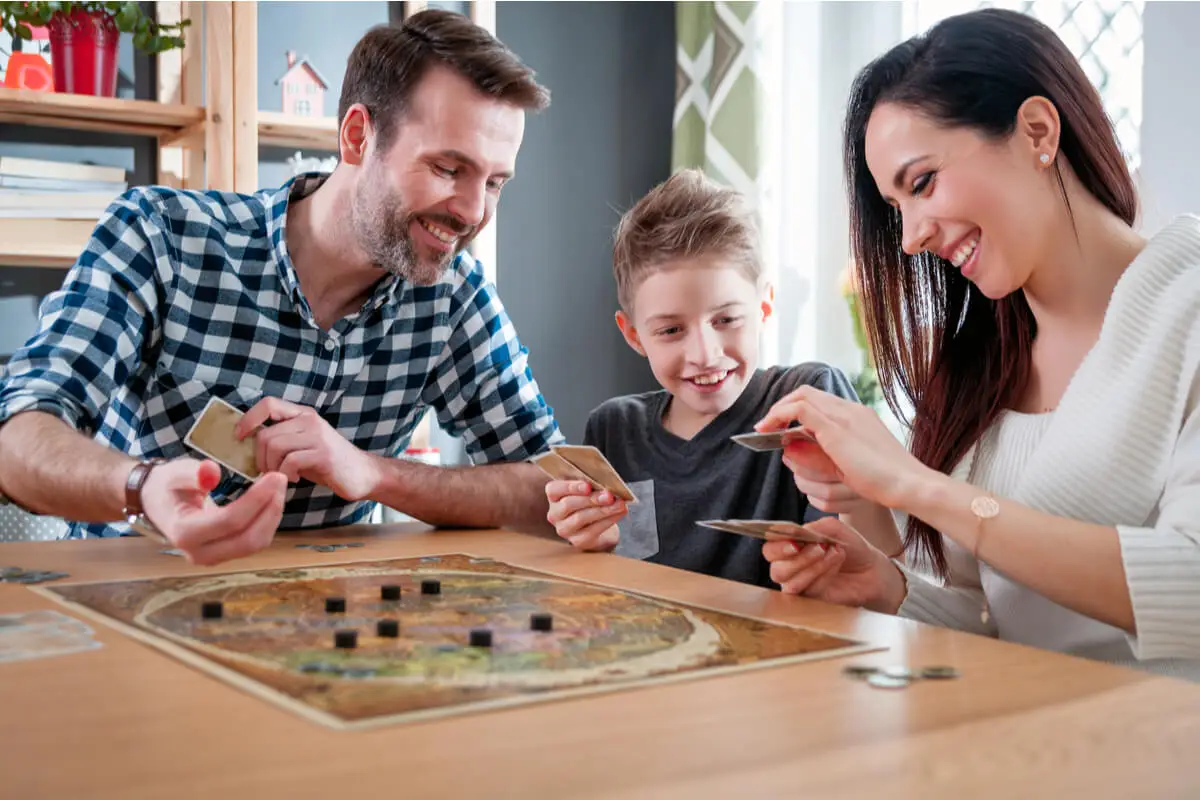The Benefits of Science for Children: Curiosity and Exploration

Childhood is the most curious stage of life. From an early age, interest in learning how things work and the answers to these questions can be linked to scientific knowledge. With each discovery, your child develops skills that will be useful in the future. This is one of the many benefits of science for children.
As they explore the environment, children build concepts adapted to their level of understanding that fuel their enthusiasm to learn more.
The U.S. Department of Education notes in a publication that young children invent interesting explanations to make sense of their environment, while older children can even make exceptional scientific arguments. We don’t need to try to push them to be chemists, engineers, or physicists. No matter what, science offers them wisdom that’s applicable in everyday life.
The influence of science on children
Science is the process of learning by observing and experimenting. It involves making mistakes and finding success, the use of data, and questioning and analyzing results. It sounds complicated, but children may find it easier to understand the whys and wherefores with simple arguments.
Sports, nature, and games, for example, provide opportunities to study and activate critical thinking. Knowing a little bit of everything strengthens their ability to communicate, to formulate opinions, to focus, to reflect, and to develop their senses by interacting with their environment.
Pay attention to your child’s questions and help him or her to investigate when s/he wants to know about animals, plants, how artifacts work, mechanics, the stars, and any topic that attracts his or her attention.

We think you may enjoy reading this article, too: 5 Trust-Building Exercises for Children, Teens, and Adults
The benefits of science for children
It’s estimated that from the age of 7, positive or negative attitudes about science education are manifested, so it’s a very good idea to take advantage and cultivate their interest around this time.
A child captivated by science is a source of productive ideas. She or he learns how to question the world, participates more actively in class, develops hobbies from ordinary things, and is better able to let his/her imagination fly.
He/she also becomes a suggestive, exploratory, and communicative person. Here are more advantages of science in childhood.
Science supports other skills
Problem-solving, reasoning, peer collaboration, vocabulary expansion, and perseverance are just a few of the practices that improve with science education. There’s also a greater familiarity with subjects such as literacy and mathematics, as well as creative skills.
Science nurtures a child’s intellectual development through the following concepts:
- Observation: Science helps children to use the senses to gather and organize information. Try giving them a set of objects and listen as they point out the color, textures, and sizes.
- Comparison: After exploring, children establish the ability to distinguish between differences and similarities.
- Classification: Once they learn how to compare, children are able to group things into categories. For example, if you give them several pears, they can separate them according to those with stems, color variation, size, etc.
- Measurement: They soon discover that this is as simple as determining sizes or quantities.
- Communication: They learn how to describe what they observed, compared, classified, and measured through text, by talking, drawing, or other forms of expression.
- Deduction: Children learn to order the information gathered and associate it with previous experiences to build new hypotheses.
- Predictions: They also learn how to make conjectures and estimates based on previous concepts.
It activates their concentration
Generally, children interested in science have high levels of concentration and remain alert to details. This is a skill that evolves with each experiment in which they participate and that will be useful in their studies or any other activity.
It promotes teamwork
When there’s a common goal, several children can join together to achieve fast and optimal results . Later on, this will help them to learn how to manage in large groups.
It helps them to form critical spaces and broadens their approaches
Each experiment that a child develops is a window to give their opinion and take ideas that favor the creation of their own thinking. Raising their appreciation for this starting in childhood is key in the formation of their own critical criteria.
Science promotes the desire to discover
The results of an experiment unleash the surprise factor. This is how curiosity is generated, so the child will most likely try to investigate. Science is a way for children to find answers and solve problems.
It encourages the exploration of nature
Experimentation outdoors stimulates curiosity, especially during early childhood. So nature becomes a giant laboratory where they can complete a variety of activities.
A trip to the beach, a walk to the park, the schoolyard, and home gardens are just a few of the many places where children can make discoveries.
Science encourages alternative methods of learning
In infancy, science helps to assimilate abstract concepts through play. Rolling balls, using ramps, or using force are ways to expose scientific cases without being boring.

Recommendations for motivating children to learn about science
A Panorama publication argues that children learn best if the activities take place in a context related to their daily lives and experiences. Looking at the stars, baking a cake, or talking about trees are all opportunities to gain scientific knowledge.
To engage children in science education, provide exciting, age-appropriate experiments. Specialty magazines (such as National Geographic) feature lists of phenomena and experiments that are sure to captivate your children.
Here are some suggestions for how you can motivate children to become interested in science:
- Discuss topics in a fun way. Science talks with kids need to be exciting.
- Invest in equipment. A microscope is sure to dazzle a child, but if the gadget is beyond your financial means, give them astronomy or cooking experiment kits, fossil digging kits, etc.
- Promote reading. Add science books for children to the family library. You can also download them from the Internet and read them together.
- Watch videos. Since observation is essential, videos about scientific facts are a great teaching aid.
- Expand on what they already know. Remember that science is cumulative, and in childhood, it’s easier to learn from what is already known.
- Answer their questions. This is a golden opportunity to nurture knowledge about a topic. Don’t leave questions unanswered and take the opportunity to investigate them together.
Like this article? You may also like to read: Authoritarian Parenting Style: Characteristics and Possible Effects on Children
Parents and support in science education
The United Nations Children’s Fund (UNICEF) points out that it’s more important to accompany children in learning than to have all the answers. It’s of great value and interest to children if their parents help them in the process.
Adults need to become resourceful, involved, and as open as children are to enjoying fun and educational practices.
All cited sources were thoroughly reviewed by our team to ensure their quality, reliability, currency, and validity. The bibliography of this article was considered reliable and of academic or scientific accuracy.
- Cómo ayudar a su hijo a aprender ciencias. Departamento de Educación de los Estados Unidos. Estados Unidos; 2005. https://www2.ed.gov/espanol/parents/academic/ciencias/ciencias.pdf
- Kiffel-Alcheh J. Experimentos científicos para entretener a los niños en casa. National Geographic. 2021. https://www.nationalgeographic.es/family/2021/02/experimentos-cientificos-para-entretener-a-los-ninos-en-casa
- Rich M. Cómo acercarles la ciencia a tus hijos pequeños. Unicef. https://www.unicef.org/es/crianza/como-acercar-ciencia-hijos-pequenos
- Ortiz Rivera G, Cervantes Coronado ML. La formación científica en los primeros años de escolaridad. Panorama. Vol. 9. Núm. 17. pp. 10-23. Colombia; 2015. https://journal.poligran.edu.co/index.php/panorama/article/view/788/578
This text is provided for informational purposes only and does not replace consultation with a professional. If in doubt, consult your specialist.








